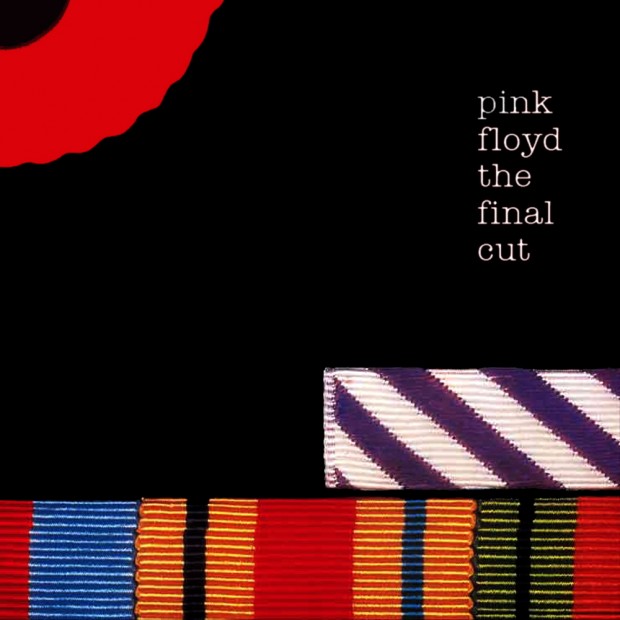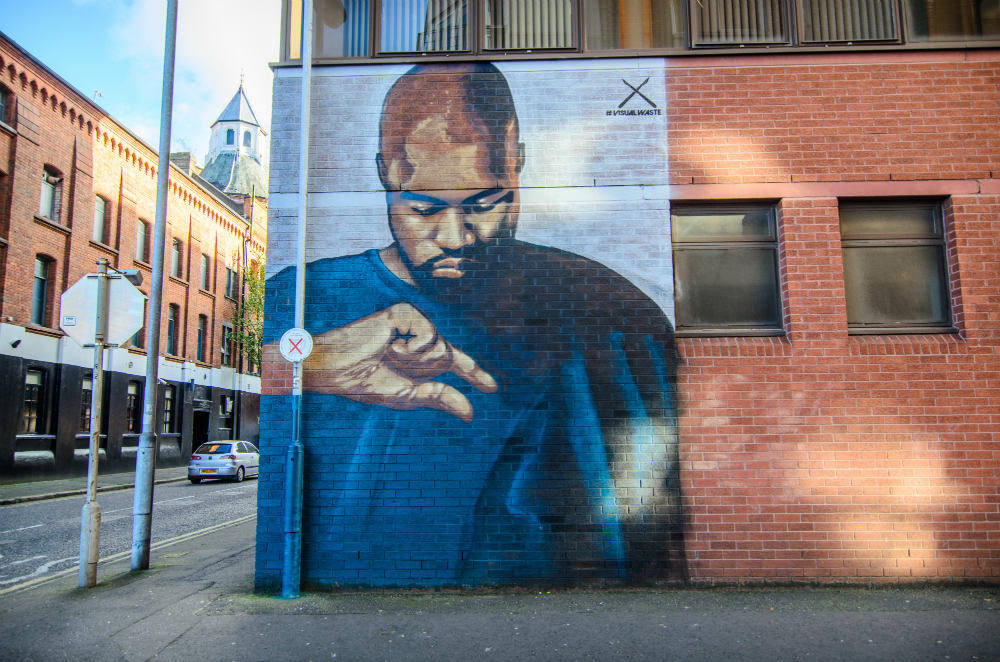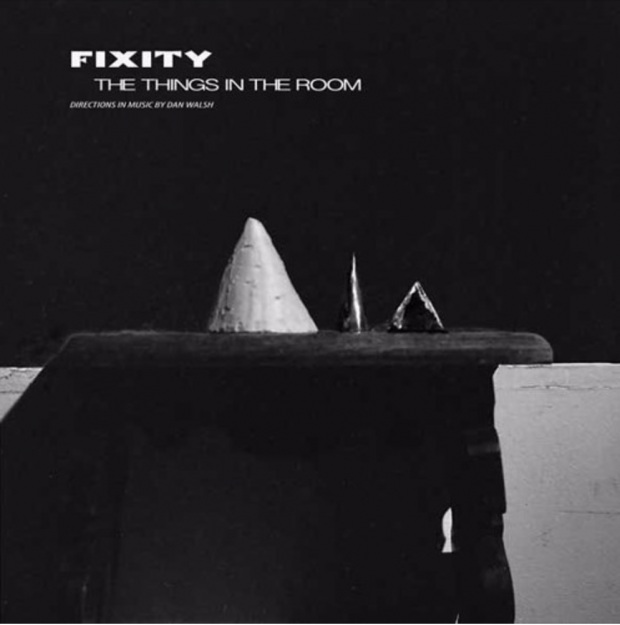And now, the tide must turn.
With the election of Donald Trump to the Oval Office, the cultural climate in America will inevitably change. These are uncertain times, even more so than in previous elections, as the world waits to see what President Trump will actually do.
But regardless of the shape of his presidency, it’s almost certain that there will be an artistic response, capturing the fears and anger from that part of the population who no longer understand the world they’ve woken up in.
The George W. Bush era was soundtracked by the pop-punk politics of Green Day and NOFX, articulating a heartfelt revulsion of the system, albeit one that seems hopelessly naive in retrospect. When Barak Obama was elected, the mood in America shifted once more, with the wispy, hazy textures of chillwave and vapourwave capturing that sense of warm nostalgia that swept across the nation. With the complete elevation of the internet to the most central position in our lives, musical styles that would have formerly existed at the very fringes of culture were able to permeate into our everyday lives, to the point where even Taylor Swift was able to score a contemporary hit record that was bathed in the retro sensibilities of a comfortable past.
But the rise of Trump has cracked open divisions within American society that have lain dormant for a long time, and the campaign has been marked by an overt bitterness, a pointed war of words that finds targets on every street corner. Regardless of how Trump begins to implement his political ambitions, it’s certain that there will be opposition from the artistic community, as people feel the world they are owed has been somehow taken from them.
By the same token, it’s likely that we could see the rise of jingoistic, flag-waving nationalism, which also ran parallel to the pseudo-anarchistic punk of the Bush administration. Trump wants to make America great again, and it’s clear that the nation loves a winner. Over the next year or so, it might not be a surprise to see the stars and stripes re-enter the visual lexicon of music.
In the late 1970s in the UK, a similar cultural battle was being fought, with the red, white, and blue of the Union Jack being used as a weapon by both sides. The explosion of punk reached its zenith in 1977, as the Queen’s Silver Jubilee celebrations clashed with the anarchistic anger of disenfranchised youth. As an older generation hung their commemorative Jubilee tea-towels out the front window, punk rock kids donned leather jackets and put safety pins through their skin.
When the Sex Pistols appeared live on television with Bill Grundy, an underground art movement was beamed into the living rooms of polite society, and the seeds were sown for a culture war that still reverberates today. ‘God Save the Queen’ is a protest song cut from the same cloth as Bob Dylan’s ‘The Times They Are A-Changing’, just slightly more badly behaved.
The Sex Pistols re-appropriated the British flag, tearing it apart, hanging it like a battered relic from a distant past. But this kind of symbolic identification wasn’t confined to punk’s sneering irony, as the Conservative Party had also rallied around the flag, gathering strength whilst James Callaghan’s Labour government floundered. Tired, and increasingly out of touch with their electorate, Callaghan was swept from power by a confident new leader – Margaret Thatcher.
Punk’s anger had swelled under Callaghan’s tenure as Prime Minister, but that was nothing compared to the shock and rage that the post-punk brigade felt towards Thatcher. And by 1982, with Britain entering into conflict with Argentina in the Falklands War, an increasingly radicalised set of musicians prepared to use their art to battle Thatcher the only way they knew how: through song. And right at the front was an incredibly unlikely candidate, Pink Floyd’s Roger Waters.
The band had dominated the 70s, going on a similar artistic journey to the Beatles in the 60s, but by the start of the 80s, the cracks had set in, with the band fracturing in the aftermath of their phenomenally successful tour to support their 1979 album, The Wall. Keyboard player Rick Wright had been fired from the band during the recording of the album, but had been kept on for the tour as a hired musician, becoming the only member of the band to profit from the costly production of the stage show.
Relations had also broken down between guitarist David Gilmour and Waters, with Gilmour becoming ever more isolated by Waters’ dictatorial approach to songwriting and production. As they embarked upon what was to become their final album together, Gilmour was reduced to the role of session guitarist in all but name, with Waters abandoning all pretence of the band being a democratic entity. For this last hurrah, Waters decided that Pink Floyd was him, and he had something he wanted to say.
Waters’ songwriting over the 70s is dominated by themes of loss, inspired by the death of his father. Eric Fletcher Waters had been a conscientious objector at the beginning of the Second World War, who later changed his stance and joined the British Army. He was killed in Aprilia in Italy on the 18th of February 1944, leaving behind a wife and a five month old son.
Waters was haunted by the death of a father he never knew, and Pink Floyd’s albums are filled with references to the injustice of war, the monstrous implications of a war machine that unfeelingly devours all in its path, and the horror at a government which feeds its imperialistic ambitions with the lives of young men. When he saw the jingoistic flag waving which accompanied Britain’s entry into the Falklands War, he began reworking the material planned as the next Pink Floyd album, re-appropriating hold-overs from The Wall, and new material, into a record that would eventually become known as The Final Cut.
Subtitled ‘A Requiem for the Post War Dream by Roger Waters, performed by Pink Floyd’, the record was unashamedly personal, and involvement from Gilmour and drummer Nick Mason was minimal. Working with American composer Michael Kamen, Waters constructed a song suite that attempted to capture the pointlessness of war, pointing the finger of blame directly at Thatcher. Drawing upon his father’s story, the record takes us on a journey where sunken British warships are rebuilt by the Japanese, and Britain’s industries are sold off to other countries by an uncaring government. Seen largely through the eyes of a returning war veteran, we experience a country where everything is for sale, and the hard won humanitarian gains of the Second World War are discarded by dark forces, only interested in power and money. Traumatised by the loss of one of his crew, this character watches as the war machine rumbles back into life, and a new, unfeeling sensibility crushes the liberal ideals that emerged in the aftermath of 1945. And by the end, everything is turned to dust, wiped out in the holocaust of thermonuclear war. Over piano, acoustic guitar, bass and drums, Waters whispers, his voice reduced to a shallow husk, “Ashes and diamonds, foe and friend, we were all equal in the end.”
Released in 1983, the album was met with mixed reviews, and despite performing well commercially, has generally been regarded as one of the weakest in the band’s back catalogue. The wounds endured during the traumatic recording process finally burst open, with Waters announcing his departure from the band, and – in his eyes, anyway – its dissolution. Gilmour and Mason thought otherwise, and so began a painful legal process which found Waters being cut out from the band he’d formed, by the person he’d invited to replace the wayward Syd Barrett.
The Final Cut isn’t the only piece of rock music to tackle the Falklands, with Elvis Costello’s ‘Shipbuilding’ capturing the mounting fear at the senselessness of war, and Billy Bragg positioning himself as a socialist songwriter in direct opposition to Thatcher’s Conservative government. But as powerfully moving as those other songs can be, few of them possess the visceral anger that Waters mustered for The Final Cut. Where the punks turned the guitars up and spat gobs of snot at each other, Waters sharpened his lyrical focus to a knifepoint, spitting out words through gritted teeth.
Roger Waters’ voice has never been the most pleasant of instruments, but on The Final Cut, it is strained to the point of pain, a nasal whine breaking into a cracked scream. Vowels and consonants are bent and broken into spat shards of meaning, creating a singularly uncomfortable experience.
But beyond the delivery, the power came from the meaning. His portrayals of men going to and returning from war, the empty shipyards, the broken spirits gathered around cenotaphs, and the knives driven deep into the backs of the innocents, all combine to create a picture of people having been utterly betrayed by the ones whom they suffered so much to protect. And though others would later do the same, Waters was unafraid to name the one he felt was responsible.
Margaret Thatcher’s presence ghosts through the entire album, most memorably in the song ‘The Fletcher Memorial Home’. With the name referencing his father, Waters tells us of a retirement home to house all the world’s tyrants, giving them a space to amuse themselves by making pretend war on each other. In a spellbinding performance, over the dramatic orchestrations of Kamen, Waters introduces us to the residents. “Ladies and gentlemen, please welcome Reagan and Haig, Mr Bagin and friend, Mrs Thatcher and Paisley, Mr Brezhnev and party, the ghost of McCarthy, the memory of Nixon, and now, adding colour, a group of anonymous Latin-American meat packing glitterati.”
And when all are assembled, Waters delivers his killer blow: “Now the final solution can be applied.”
Johnny Rotten may have told us that there was “No future in England’s dreaming”, but Waters isn’t content to sit back and let it happen around him. The music on the album alternates between hushed orchestrations and rock bombast, punctured by the crystalline guitar solos of Gilmour. He may have been side-lined, but that didn’t stop him pulling off some of his most emotive guitar work, adding tone to Waters’ otherwise one-note litany of anger. Indeed, while this is a largely a Waters solo work in all but name, it absolutely still feels like a Pink Floyd album, and even when Waters is the only member of the band to feature on a song, the whole concept and his force of feeling make it still feel like an absolutely essential part of their recorded output.
But that doesn’t make it an easy album to get through. Melodically, The Final Cut has far less going on than previous albums, with Waters’ focus clearly a lyrical one. Kamen’s orchestrations help flesh things out, but one can never quite shake the fact that Waters could have been quite happy to just shout the lyrics out over silence. His voice can be incredibly expressive, but taken in such an undiluted form, it becomes hectoring, a man shouting at us, rather than for us. Gilmour only sings on one track, the brutally ugly ‘Not Now John’, which finds him embodying a self-serving thug, content to go along with the war machine, belting out, “Fuck all that, we’ve got to get on with these. We’ve got to compete with the wily Japanese,” while a cooing chorus of soul singers croon, “Fuck all that” in unison. And while his character seems overtly preoccupied in getting to the bar in the face of all this injustice, in some way it foreshadows the cold, unfeeling commercialism of the yuppies that were to dominate the latter half of the decade.
Waters’ dedication to inhabiting the evil he seeks to skewer isn’t always successful, throwing around racial slurs as he projects the character of a closed-minded Little Englander. Despite his intentions, some of these projections come across as clumsy, particularly due to his vocal domination of the record. Waters is jumping from character to character, but it’s almost impossible to work out what the boundaries between him and the characters are.
Nonetheless, it all adds up to a sustained feeling of regret, anger, and rage. Like a lament shouted in the face of an enemy, The Final Cut is a profound anti-war, and anti-Thatcher statement. Inhabiting a similar space to Monty Python’s 1983 film The Meaning of Life, the record is light on humour, and if there is a joke to be had, then it’s more than likely at our own expense. The final cinematic Monty Python outing, The Meaning of Life is populated with bullying, aggressive characters, clinging on to outdated notions of Britishness in a world falling apart, a world ruled by men in uniformly grey suits, observing the collapse of morality from towering office blocks. If one learns any secrets of the meaning of life from the film, then it’s likely to be that life is cheap. And that it ends.
Two years later, the BBC would screen a six-part drama series entitled Edge of Darkness. Written by Troy Kennedy Martin, the series was part conspiracy theory thriller, part spiritual journey. Following the efforts of a policeman as he attempts to uncover the seemingly meaningless murder of his daughter, Edge of Darkness takes us into a world of paranoia, nuclear Armageddon, cover-ups, and a government hell-bent on reducing the world to ashes.
Much like Waters’ protagonist observing a nuclear fireball illuminating the night sky in his rear-view mirror in ‘Two Suns in the Sunset’, Ronald Craven, played by Bob Peck, finds himself staring headlong into the abyss, willing the earth itself to wage war on humanity in revenge for all we’ve done to the planet. All these years later, it’s still a stunning piece of television drama, shot through with cynicism at the rise and dominance of Thatcherism. The soundtrack is by Eric Clapton – and Michael Kamen.
Whether music or television can mount an appropriate response – positive or negative – remains to be seen. What is true is that we now live in a world of ‘post-truth’ politics, where a lie can be told, and if you repeat it enough times, or even just once convincingly enough, it becomes real. Meaning and reason have become fluid and nebulous, and for a songwriter attempting to skewer their enemy, that becomes significantly harder when the game appears to be rigged. And when you have an audience who don’t care anymore whether something is real or not, and whose memory span gets shorted by the day, artistic broadsides at an invisible target can seem unwieldy and pointless.
But back in 1983, Roger Waters grabbed evil, as he saw it, by the scruff of the neck. And rather than give it a good kicking, he nuked it out of existence, himself with it. With Donald Trump’s finger on the Big Red Button, let’s all hope it doesn’t come to that. Steven Rainey






